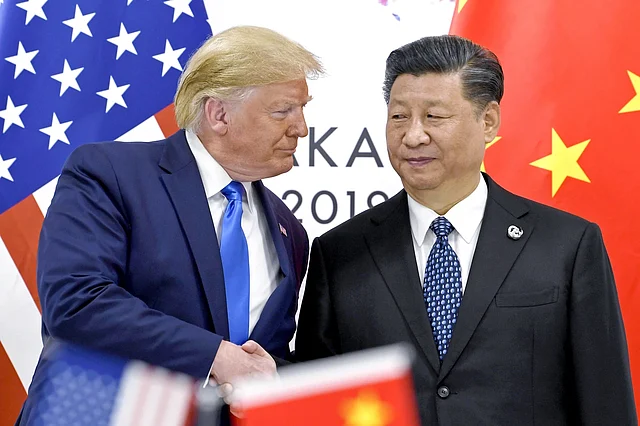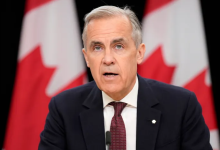China Responds to Trump’s Tariffs with Defiance as Trade Tensions Soar

The United States and China are locked in an escalating trade dispute as President Donald Trump’s administration imposed tariffs of up to 245% on Chinese imports, according to a White House fact sheet released Tuesday. The tariffs, part of Trump’s “America First Trade Policy,” aim to protect U.S. industries and bolster domestic supply chains, the White House stated.
The U.S. decision comes in response to China’s recent export controls and retaliatory tariffs, prompting Washington to exclude China from a temporary tariff pause granted to other countries. While specific products targeted by the tariffs were not detailed, analysts predict significant impacts on consumer and industrial goods, potentially increasing costs for American businesses and consumers.
China’s foreign ministry sharply criticized the U.S. tariffs, calling them “unilateral bullying” that flouts international trade rules. “If the US continues to play the tariff numbers game, China will ignore it,” the ministry declared, hinting at potential countermeasures. Beijing’s commerce ministry had earlier called on the U.S. to scrap its tariff policies.
The trade war’s ripple effects are already evident, with the World Trade Organization projecting a 0.2% decline in global trade volume for 2025 due to Trump’s tariffs, compared to a 2.7% growth forecast without them. The current 245% tariffs build on prior U.S. measures, including a 100% duty on Chinese syringes from September 2024, a 20% tariff linked to fentanyl trafficking, and a 125% reciprocal tariff, as outlined by the White House.
Trump, prioritizing trade reform in his second term, defended the tariffs as critical to U.S. economic interests. “On Day One, President Trump initiated his America First Trade Policy to make America’s economy great again,” the White House said. In response, China named Li Chenggang as its new trade envoy to manage the intensifying dispute, a strategic move to counter U.S. pressure.
With both sides entrenched, the global economy faces risks of sustained inflation and supply chain disruptions, as the U.S.-China trade conflict shows no signs of easing.




